Why We’re Still Obsessed with Dead Greeks
Talking about the Classics with Nadya Williams
The classics maintain a firm hold on the modern imagination. One person obsessed with helping to illumine and enrich that fascination? Nadya Williams. After earning her doctorate in classics from Princeton, Williams served fifteen years as a professor of history. Today she works as the interim director of the Master of Fine Arts in Creative Writing program at Ashland University.
Williams’s work has been featured in several publications, including Christianity Today, Providence, Front Porch Republic, and Mere Orthodoxy, where she serves as the Books Editor.
She’s also written several books of her own, including Cultural Christians in the Early Church and Mothers, Children, and the Body Politic. When I saw the announcement for her latest, Christians Reading Classics I knew I wanted to talk with her about it—particularly how these ancient voices remain relevant today.
I am not a fan of decline narratives and tend to think they’re almost always wrong. But they have a long, long tradition. Can we blame Hesiod for that?
It seems that as long as there has been literature, there have been decline narratives. So, Hesiod shouldn’t get the credit or the blame. But what these narratives show is that life under the sun has always been hard. And whenever life is hard, it’s easy to idealize some sort of past—always imaginary or seen through rose-colored glasses, just barely out-of-reach—when things were better.
Historians are on standby to tell you that, in fact, things were not better at whatever period you’re thinking of. For that matter, historians will also debunk any narratives of linear progress. (Why, yes, we’re a lot of fun at parties!)
Is there value in decline narratives? What am I missing?
I think the value of these narratives lies in what they show about human nature. We are highly averse to change, and all change seems to be negative, no matter how much data to the contrary we may have—like people today who dream on social media of living in the Middle Ages, ignoring such facts as rampant diseases (bubonic plague, anyone?), scarcity of all sorts of resources, and war.
But to jump to a different period as an example, the beauty of Peter Brown’s work on late antiquity is that he showed that instead of thinking (with Gibbon) about the Decline and Fall of the Roman Empire we should recognize the beauty of a completely different period, with a different culture.
“We should recognize the beauty of a completely different period, with a different culture.”
—Nadya Williams
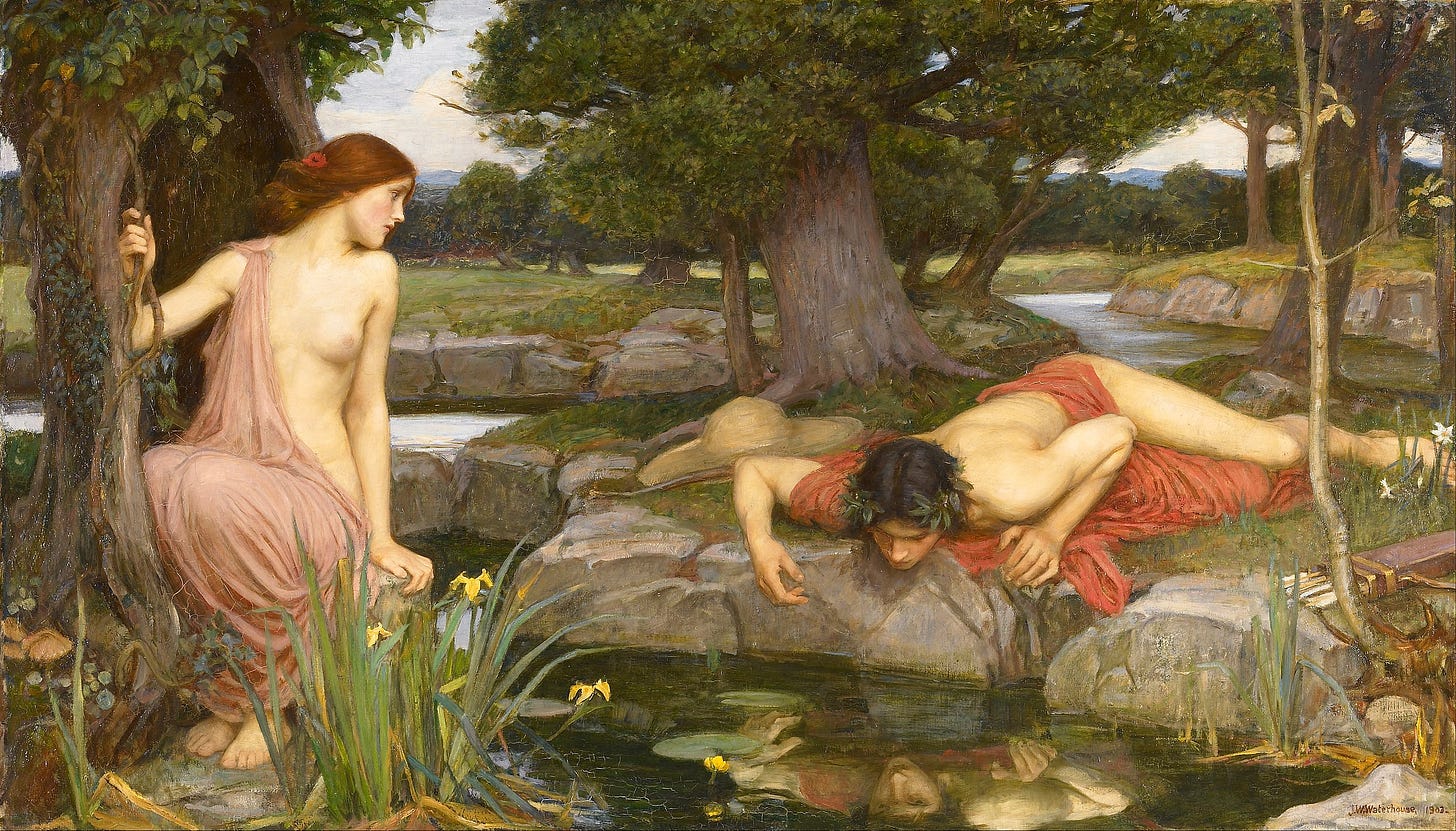
When I read your description of Narcissus and Echo, it felt a little bit like I was looking at a diagnosis of our public discourse. What might Ovid say about that?
Ha! Well, the real irony is that in his own life, Ovid seems to have been a bit like both Narcissus and Echo. Like Echo, he got into trouble with Augustus because of words he used for ill. And like Narcissus, he then pined for himself and his former glories in Rome after his exile to Tomi. But then that’s how we too often are—we can tell great cautionary tales, but we don’t often let them form us toward virtue.
Romans, especially the elite, divided life between negotium and otium—what we might call work and leisure. Depending on where you look, our culture seems to have a pretty disordered understanding of both. What can the classics tell us about fixing that?
The very act of reading the classics already calls us to a different understanding of work and leisure than we have in mind. Reading the classics is certainly leisure and delight, but it’s not an empty sort of leisure. It requires intellectual effort that we are more tempted to put in the category of work. But such stories of disordered work/leisure that I discuss in the book also remind us that we all have a calling, a purpose. And whenever we feel unmoored from our calling or purpose, we feel desperately soul-sick.
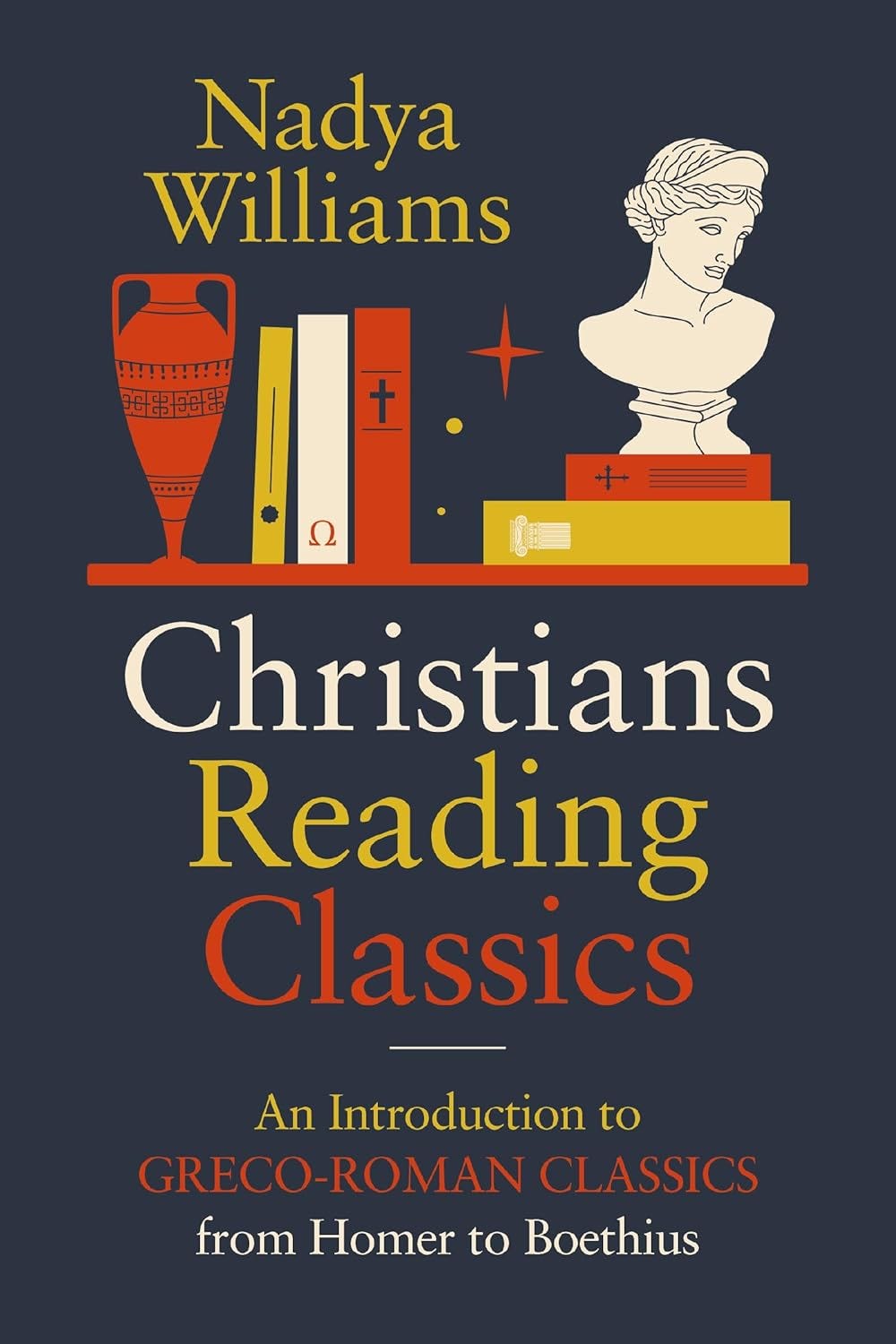
You talk about the importance of shared literature for the education of citizens. How does literature make us better members of civil society and how do the classics especially help with that?
Shared literature gives us something to appreciate together in spite of our different lives and backgrounds—laugh at the same jokes, weep at the same tragedies, have the same inside stories and phrases that enter the language. This brings us together—just like families who grow closer together when they have shared experiences. Literature allows for this on a larger scale, for communities entire. This, furthermore, helps to bring us outside our selfish predilections, helping us to see suffering face-to-face and confront how we might respond to it in real life.
I think the classics are particularly well equipped to achieve this, because they’ve shown their ability to appeal to audiences for millennia (or, in the case of more recent classics, at least a century or so) already. The classics are a good reminder that underneath all the things that set us apart, we still have so much that is shared. Recognizing our shared love for beauty ultimately should make us think of our shared Creator too!
“Classics are a good reminder that underneath all the things that set us apart, we still have so much that is shared.”
—Nadya Williams
What is the connection between poetry and rhetoric, formation and persuasion?
All words have the potential for power. We love words, and we all love power. So, we probably spend more time thinking about how we wield our words. While we may not think of poetry and rhetoric in the same breath, both involve knowing one’s audience and knowing how to use a particular literary form to convince that audience.
Ultimately, words are so powerful because they form us. Words that stay with us change us in some way—whether through persuading us that X or Y is true, or persuading us to do something (e.g., hire the person we’re interviewing), or through shaping us in toward virtue or away from virtue in a way that we may not even quite fully recognize. All reading is formational!
As you point out, Lysistrata was written by a man; so, even though it involves something of the feminist protest, it’s really not a feminist text. But it is interestingly subversive in that it’s essentially an anti-war message delivered in a society willing—if not always eager—to go to war. How were messages like that received and what does that tell us about our own subversive messages today?
Unfortunately, we don’t have information about the dramatic competition from 411 BC, so we don’t know if Lysistrata won first prize that year—which would have told us something about immediate reception. But it clearly continued to be popular with readers since then: its very survival (when the vast majority of Aristophanes’s comedies didn’t survive) speaks to its continued popularity in antiquity.
Aristophanes had staged several anti-war plays over the course of his career, and they were received well. We do know that throughout the Peloponnesian War, there was a significant number of Athenians who just wanted the war to end already—but there were also those who repeatedly voted against attempts to pursue peace. It’s a good reminder that functional democracies must have ways to disagree—for different opinions to be aired and for different sides to talk together. The comedy stage was one way this happened in Athens!
“Functional democracies must have ways to disagree—for different opinions to be aired and for different sides to talk together. The comedy stage was one way this happened in Athens!”
—Nadya Williams
The classic epic poems, say, the Iliad tend to glorify a certain sort of masculinity and heroism. The later lyric poets sometimes subvert those themes; I’m thinking of Archilochus joking about stashing his shield in a bush. Two questions here: Where do the lyric poets fit in overall scheme of classic Greek literature, and more broadly how do we work with contrarian voices in the canon? There isn’t a univocal “classic past” that speaks to us today.
It’s true that not all classical poetry speaks in one voice, but it’s also important to note which voices prevail. Far fewer people are familiar with Archilochus than Homer. Lyric poetry has its thousands of fans, but epic poetry gets its tens of thousands. To me this suggests that over the nearly three millennia that the Homeric epics have circulated, they have enticed generations of audiences in a way that the more contrarian voices haven’t been able to do. In fact, it says something that it’s Homeric epic that has inspired Archilochus! The claim to innovation that contrarians like him boast is that they oppose the Homeric ideals, but without Homer they wouldn’t exist in the first place.
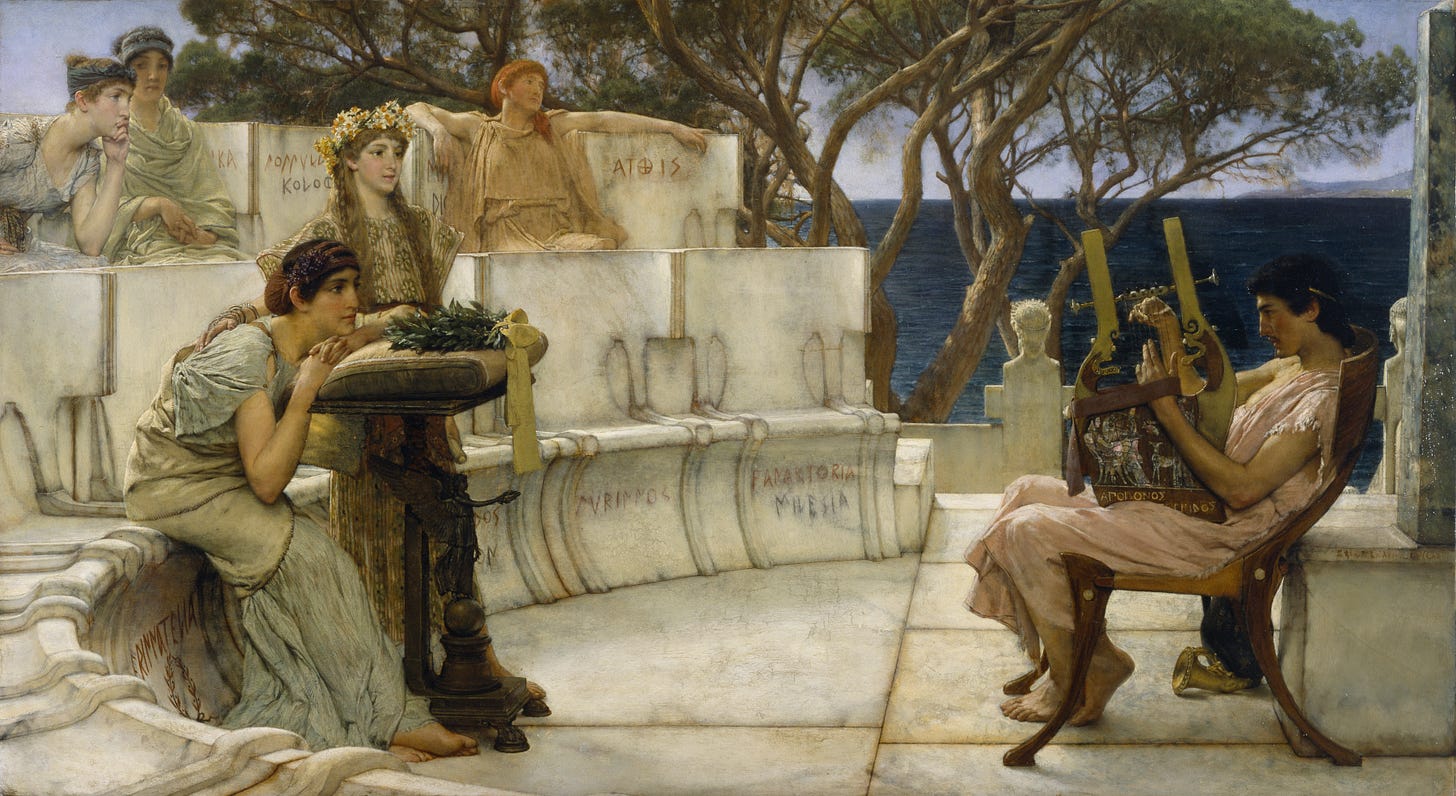
To be clear, I do appreciate such contrarian voices—I wrote my dissertation on soldiers who dared criticize their commanders in Greco-Roman literature, and I discussed Archilochus and Homer’s Thersites in the mix. But the presence of these dissenters should push us to ask why their voices never prevail—and dissenting literature never becomes more popular than good, old-fashioned, highly bloody heroic epic.
People have always longed for heroes.
What does Tacitus tell us about how to be a good man under a bad Emperor? (Asking for a friend.)
The virtues matter, always, even if no one ever sees. Tacitus was convinced that maintaining the goodness of one’s character, not being corrupted by proximity to power or unethical demands from the emperor, was always worth it—even if it cost one everything, down to one’s life. It is a really striking and humbling attitude to see from someone who was not a believer—and therefore, there was no theological reason for him to adopt this conviction. And yet he did.
When we think about the classics, we mostly think of stories—the Iliad, the Aeneid, and so on—or maybe the writings of philosophers and statesman like Plato and Cicero. But what about the ancient category of handbooks?
Ah, yes! The handbooks are so fun! I think more people should pick them up, because they are remarkably accessible, and funny to us in ways they wouldn’t have been to their original audiences. Like Apicius’s cookbook—no Roman would have laughed at recipes for dormice or snails soaked in milk. But I can’t help but find them highly entertaining! So, I think we’re more likely to read them today not as handbooks (please don’t try any ancient medical cures at home!), but as unexpected insights into a world that was both different from our own and yet reflected the fullness of human experience.
“No Roman would have laughed at recipes for dormice or snails soaked in milk.”
—Nadya Williams
You mention handbooks were “silent on one important subject: the care of people.” I sometimes think about David Bentley Hart’s observation in Atheist Delusions that while people may not love Christian virtues, pre-Christian virtues were nothing to write home about, and post-Christian virtues might be much worse. (I think Bart Ehrman says something similar toward the end of The Triumph of Christianity, though it’s been a long while since I’ve read it.) How should we think about that?
I think that’s oversimplifying things a bit. The entire interest in exemplarity in Roman literature for instance (the search for virtuous role models) and then the genre of biography, like Plutarch’s Lives, are all about the virtues! They celebrate good character of those who have the virtues, and criticize those who are not virtuous. Now, did faith, hope, and love look exactly the same to pagan thinkers who thought much about the virtues as they do to, say, Augustine? No. But it is a bit silly to dismiss the pre-Christian virtues altogether. The pagans did not see the full Truth, but those who were pursuing truth, goodness, and beauty saw at least significant glimpses!
One area where this comes up for me was hearing Secretary of Defense Pete Hegseth remind his soldiers they’re not “Nordic pagans” and FBI director Kash Patel weirdly telling the departed Charlie Kirk, “I’ll see you in Valhalla.” It seems as though there’s an odd resurgence of pre-Christian values at play. You discuss Achilles’s quest for glory and that ultimately we should read that as a warning, that glory for its own sake is unsatisfying. Say more about that and where we find ourselves today. I sense this goes beyond martial concerns.
Ah, yes, when it comes to military virtues in particular, I think there is a resurgence of pre-Christian values—or maybe this was always the temptation in the military realm. It seems that to talk of war and glory in the same breath comes naturally even to Christians—consider the Crusading knights and how they thought and wrote of their quest for glory! This is not to say that I think there is never any excuse for war, but I think I’m siding with Thucydides here, who found that war (especially prolonged war) warps our moral compass and erodes virtues—both of individuals and of societies.
But this indeed applies far beyond just the military realm. Most people are very competitive. We like to win. We like to get the credit—or the glory—for whatever we do. No wonder our politics is so warped! But for Christians, what should moderate our quests for glory (although it doesn’t always, unfortunately) is meditating on God’s Glory.
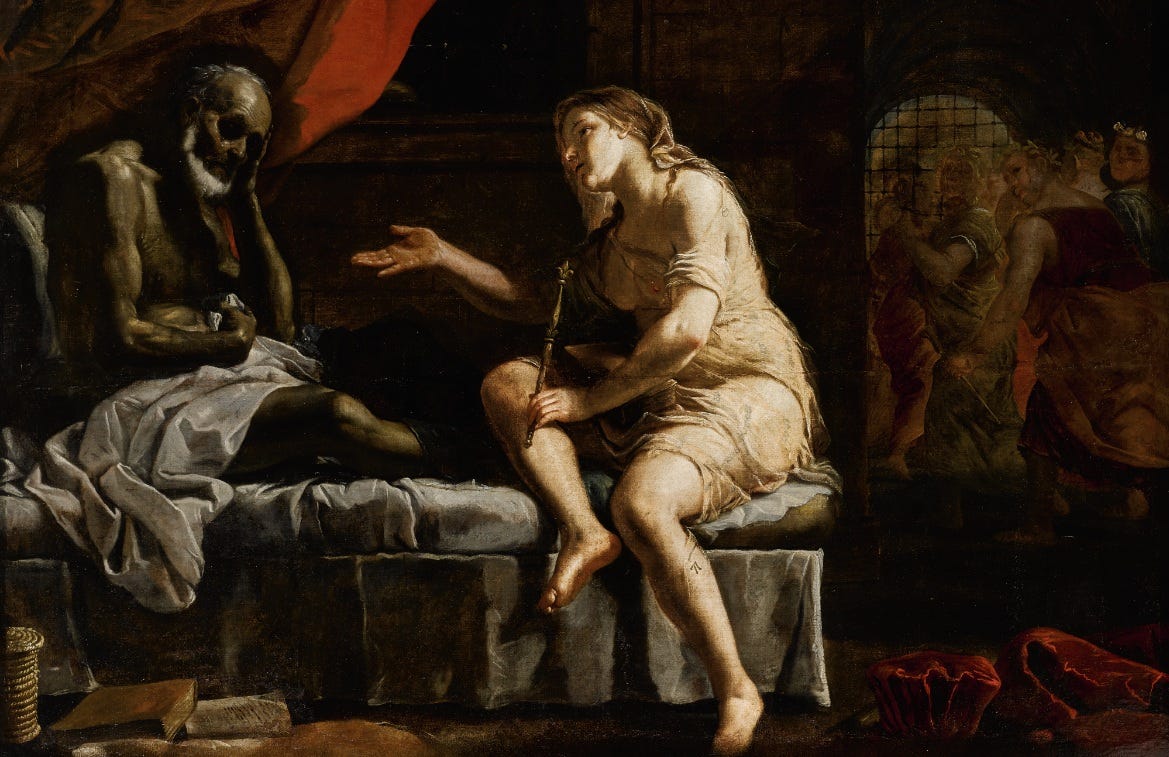
You close your book with a reflection on Boethius’s Consolation of Philosophy. I’ve only read it once, but it would seem like a single text that sums up so much of what you discuss in the book.
Absolutely—it does! And that’s the impressive thing about Boethius—that he had managed to internalize the entire 1500-year-old literary tradition leading up to his own time and could bring it all together coherently and accessibly to reflect on its significance. It’s truly impressive that he did it all from memory, too. I mention that he is a bookend—after Boethius, we talk about the Medieval world. But Boethius still belongs to the Classical world, and I think part of this is because Boethius himself thought he was the intellectual and literary product of the Classics world. And yet, he was a Christian—reading the classics.
“That’s the impressive thing about Boethius—that he had managed to internalize the entire 1500-year-old literary tradition leading up to his own time and could bring it all together coherently and accessibly to reflect on its significance.“
—Nadya Williams
At the beginning of the book, you mention how reading the great books can feel like a chore. How do we bring joy to the effort? How do we find delight in the classics?
It’s all about training our literary palates—just like with foods, I was shocked to learn a while back that it takes kids as much as 17 times of trying a food before they may decide they like it. (Alas, after trying broccoli once, my 10-year-old refuses to try it another 16 times.) With literature as well, if we are used to more accessible popular writing of today, reading epics is going to feel jarring—and that’s before we even consider our cultural differences.
The great books are so deep, but they require a bit more work from the reader than we are used to giving our books most of the time. So easing yourself in is a good idea, rather than deciding to go whole hog and read the entire Odyssey tomorrow. Or, in fact, reading the entire Bible in just a few sittings—we don’t do it, because it is such intense reading! But we also recognize that it is good for us.
I hope that my book helps readers new to the Greco-Roman classics find delight in them by giving them pointers, themes and concepts to look for. Rather than going in blind, here, take a flashlight!
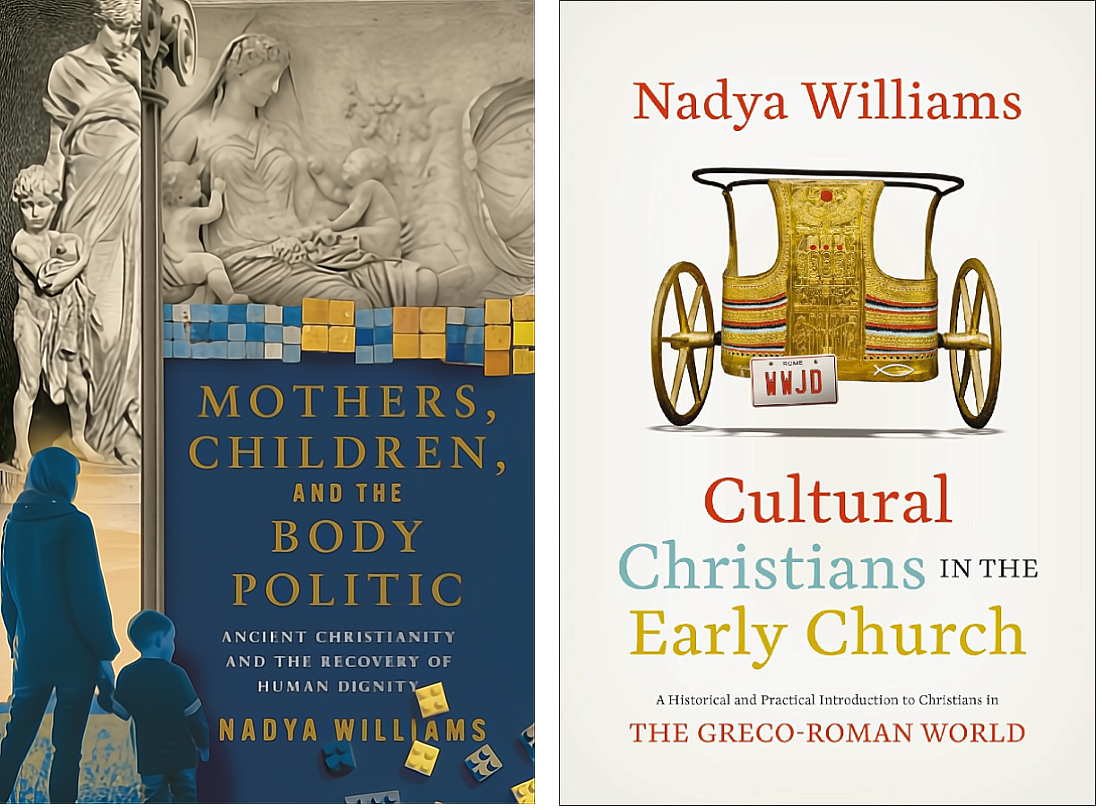
What sparked your engagement?
I first found a book of Greco-Roman mythology in my family library as a kid (maybe 7 or 8?), and it just absorbed me from the first read! I remember that it had summaries and excerpts from epics, tragedies, and just told a whole bunch of myths. After that, I had to read more and more of these stories. And then I started Latin in high school, and that was the gateway drug to Greek, naturally. That brought yet another dimension of delight—I just found it so incredibly exhilarating that here was I, millennia removed from these authors, but still reading their actual words. Such delight!
Give us three classic works you recommend people start with.
Perhaps the Greek tragedies are some of the easiest to start with, because they’re short, accessible, and powerful. You can read through something like Oedipus the King in an afternoon, but it will stay with you a long while. Likewise, Antigone or Medea. The tragedies were written to be accessible to general audiences, and it shows.
But I’ll add also Apuleius’s novel, The Golden Ass. It is wild—really. And salacious at times—readers beware. But it shows ugliness of life in the Roman Empire in a way that is entertaining. You can see when you read why C.S. Lewis loved it so much that he wrote a book of his own based on a part of it—his Till We Have Faces is based on the Myth of Cupid and Psyche that is the middle episode of the novel.
“The great books are so deep, but they require a bit more work from the reader than we are used to giving our books most of the time. So easing yourself in is a good idea. . . .”
—Nadya Williams
How should we think about translations? Which are best, and is that even a thing?
Oof, the translation wars are real! I wrote a while back about the parallels between the Bible translation wars and the Homer translation wars—people get seriously vicious and take sides about which translation is the best one, and the whole thing gets quite silly to me, especially since too often the people who are the most vocal about this don’t even know the languages, or don’t know them well.
My hot take is that it really doesn’t matter what translation you read, so long as you personally find it readable. Any published translation has gone through plenty of vetting and was likely done by someone who has been studying the languages and the work of literature they’re translating for decades. In this day and age, you can find excerpts online, so you can tell what the style is. Or you can check out a bunch from your local library and decide which one appeals to you. So, the best translation is the one that will keep you reading!
Final question: You can invite any three authors—I’m not limiting you to classical figures—for a long meal to discuss whatever strikes your fancy. Neither time nor language is an obstacle. Who do you pick, why, and what would that conversation sound like?
I have so many faith and creativity questions for Perpetua, Faltonia Betitia Proba, and Dorothy Leigh Sayers! I would love to invite the three of them to dinner and just hear more about what led each of them to Christ and talk about women’s intellectual and creative lives. I think it would make the conversation extra fun—and extra spicy—if we could invite the wonderful Antonin Sertillanges (the author of The Intellectual Life) to moderate the conversation.
Thanks for reading! If you enjoyed this post, please hit the ❤️ icon, share it with a friend, and 💬 discuss it in the comments below.
More remarkable reading is on its way. Don’t miss out. Subscribe for free below.
And while you’re here, check out this earlier exchange with Vergil translator Shadi Bartsch.




I read the classics to learn about the past, but I find reading highly respected ancients often serve to topple them off the pedestal that reputation built. I recently finished reading a translation of Aristotle's 'The Art of Rhetoric', and one of Aristotle's premises, that of automatically assuming inherent male superiority, was a bit staggering. It seemed irrelevant whenever he brought it up - he was writing about persuasive public speaking, after all, not discussing domestic division of labour - and it showed that his deductive reasoning was inherently flawed by his own cultural and personal biases. It also emphasizes that ancient Greek culture had more in common with traditional honour culture than modern culture.
I just ordered the book!